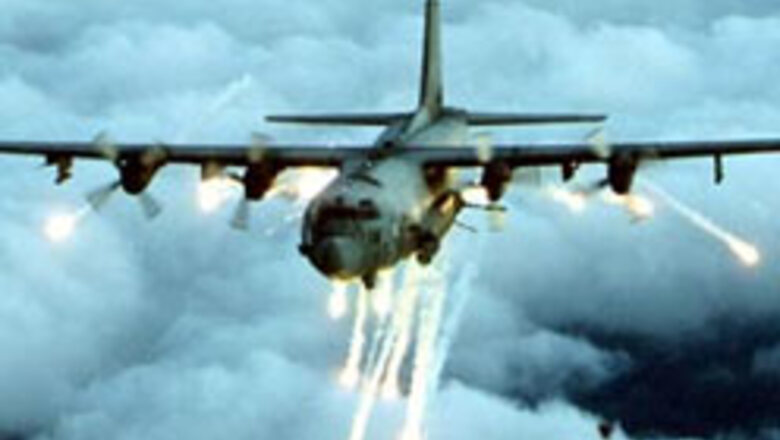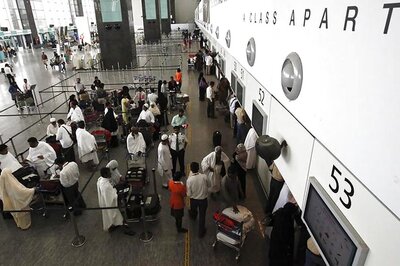
views
Washington: A US gunship attacked suspected al-Qaeda targets in southern Somalia, a senior Pentagon official said Monday.
The AC-130 flew its mission within the last 24 hours, the official told CNN on Monday. The operation was launched based on intelligence that suspected al Qaeda terrorists were at the location, but there was no immediate indication of how successful the strike had been.
The official said the al Qaeda targets had fled south late last month from Somalia's capital, Mogadishu, after Ethiopian-backed Somali troops forced out Islamist militants who had taken over much of southern Somalia.
He did not identify the targets, but US officials accused the Somali militant group, the Islamic Courts Union, of harboring suspects in the 1998 bombings of the US embassies in Tanzania and Kenya.
The Islamists—who wrested control of Mogadishu from a US-backed coalition of warlords in June—denied the allegations.
Responding to news of the operation on Tuesday, Somalia interim President Abdullahi Yusuf Ahmed had few details but supported its goals.
"If it's confirmed, I agree with the Americans to target those who were behind the bombings of US embassies in East Africa," Ahmed said.
The Pentagon official said earlier Monday the aircraft carrier USS Dwight D. Eisenhower had moved within striking distance of Somalia, but its jets had not yet been put to use.
US authorities believe three al Qaeda members accused in the 1998 bombings of US embassies in Kenya and Tanzania have been hiding in Somalia for years.
The three are believed to be closely tied to the ICU.
PAGE_BREAK
The FBI Web site lists the wanted men as Fahid Mohammad Ally Msalam; Fazul Abdullah Mohammed; Ahmed Mohammed Hamed Ali; Abdullah Ahmed Abdullah; Anas al-Liby; and Ayman al-Zawahri.
Rewards for information leading to the apprehension and conviction of each of the suspects is up to $5 million. However, there is a reward of up to $25 million for al-Zawahri.
According to the FBI, al-Zawahri is a physician and founder of the Egyptian Islamic Jihad, an organization opposed to the secular Egyptian government. In approximately 1998, the EIJ, led by al-Zawahri, merged with al Qaeda.
In November 2006, American officials confirmed that al Qaeda member Muhsin Musa Matwalli Atwah, who was also wanted in connection with bombings, was killed in April in Pakistan.
"We had seen intelligence evidence these three al Qaeda operatives were very much influencing the leadership of the council of the ICU—for example providing logistics, fuel and arms to the militias," said Jendayi Frazer, the US State Department's Assistant Secretary for African Affairs.
US officials in East Africa said earlier this week that al Qaeda operatives were developing the ability to attack U.S. targets just as they did when the embassy bombings killed hundreds.
Intelligence shows al Qaeda stepped up its operations in Somalia in June after the Islamic militia took power.
Their camps taught radical Islam to young men, weapons flowed in from eastern European arms dealers and money arrived from the Middle East, US officials said.
"What we were really concerned about was there seemed to be much more recruiting, much more training going on. They were positioning themselves to expand their area of influence beyond Somali borders," said Rear Adm. Richard Hunt of Task Force Horn of Africa.
Neighboring Ethiopia was also worried by the prospect of a hard-line Islamic regime next door. Its invasion to oust the Islamic militia met with no objections from Washington.
Al Qaeda's deputy leader urged Somalia's Islamic militia to attack Ethiopian forces, according to an audiotape on the Internet, The Associated Press reported last week.
"I speak to you today as the crusader Ethiopian invasion forces violate the soil of the beloved Muslim Somalia," said Ayman al-Zawahri, the AP reported.
About 40 percent of Ethiopians are Christian, according to the US State Department.


















Comments
0 comment